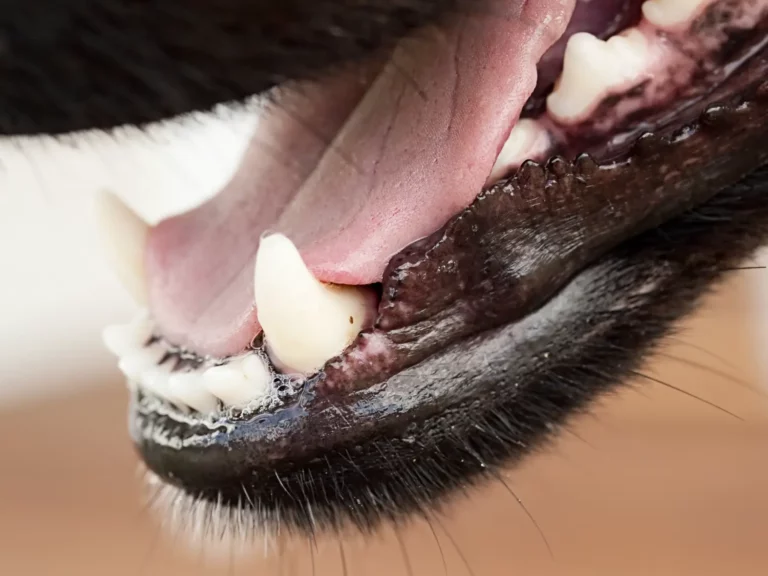How Often Should I Spray My Dog with Apple Cider Vinegar?
Apple cider vinegar has antibacterial and antiseptic properties. It is highly acidic and is famous for spraying furry pets such as dogs. Every dog owner should conduct proper research and do a patch test before using any home remedies for their dogs. If you are wondering how often you can spray your dog with apple cider vinegar and if it is safe or not, you are in the right place.
Spray apple cider vinegar once a week on your dog’s skin. Its disinfectant and antibacterial properties reduce itchiness, prevent fleas, body odor, and yeast allergies, relieve ear infections, and make your dog feel relaxed. Dilute apple cider vinegar with water before spraying your dog.
You must know what is the right amount of apple cider vinegar for your dog before putting it on its skin or adding it to your dog’s diet. Apple cider vinegar can cause some side effects if not used correctly. So, let’s learn how to use apple cider vinegar for dog skin, the recommended dosage, its benefits, and its side effects!
Key takeaways
Apple cider vinegar (ACV) is a natural remedy that can be beneficial for your dog’s health and hygiene.
Regular sprays of ACV on your dog’s coat can help keep fleas and ticks at bay, soothe skin irritations, and improve coat shine.
The recommended frequency for spraying ACV on your dog is once a week, but this can vary depending on the dog’s skin condition and needs.
Always dilute ACV with water before spraying it on your dog. A good rule of thumb is a 50:50 ratio.
ACV is safe for most dogs, but it’s always a good idea to do a patch test first to check for any skin reactions.
Never apply ACV to open wounds, and avoid spraying it near your dog’s eyes and ears.
For internal use, always consult with a vet for the correct dosage and to ensure it’s safe for your dog.
While ACV has many benefits, it is not a substitute for regular veterinary care or prescribed medications.
Is Apple Cider Vinegar Good For Dog’s Skin?
Pet owners should only use natural remedies having proven and beneficial actions. Apple cider vinegar is one of those substances available at home that helps dog owners in many ways. For centuries, natural remedies including ingredients like ACV have been common for treating pesticides and itchiness.
Apple cider vinegar is safe to use on dogs’ skin. However, you should make sure that it is raw and organic. Any preservatives present in ACV may kill the advantageous enzymes of ACV. The dog skin requires these enzymes for fighting yeast and other problems.
Moreover, the ACV should be free of any other chemical compounds that might do more harm than good to the dog’s skin.
The disinfecting and cleaning properties of ACV prevent many skin issues in dogs. It is safe for topical use but you have to dilute it.
The thing is: Undiluted apple cider vinegar is too strong for the skin.
How Often Should I Spray My Dog With Apple Cider Vinegar?
Apple cider vinegar is strongly acidic having a pH of 2-3. Pure apple cider vinegar may cause burns on the dog’s skin. Therefore, you should dilute it in water.
Using apple cider vinegar on a dog’s skin every day is damaging to it. Whether you dilute ACV or not, you shouldn’t use it on dog fur or skin daily. If your dog is suffering from yeast, itch, fleas, or irritation, spray apple cider vinegar once a week on your dog’s fur.
For visible results, keep apple cider vinegar on dog fur for at least 15 minutes. Do this once a week to prevent fleas and irritation.
The recommended dosage for using ACV on a dog’s skin is 1 part ACV and 2-4 parts water. The amount of dilution depends upon the seriousness of the issue you are treating.
As apple cider vinegar has highly acidic properties, a small amount of it is enough for keeping fleas and infections away.
Don’t make it a routine to spray apple cider vinegar on your dog every week. Only use this natural remedy to treat specific problems mentioned below. When the problem is treated, you can spray ACV occasionally on your dog.
Benefits Of Apple Cider Vinegar For Your Dog’s Skin
A dog can benefit from apple cider vinegar spray in multiple ways. But remember to not spray on open wounds as the apple cider vinegar might cause burning and irritation. You should use the recommended dosage of ACV for your dog for a safe experience.
Below are mentioned the top benefits of apple cider vinegar for your dog’s skin. So, let’s find out!
Relieves Skin Allergies or Itchiness
Apple cider vinegar not only treats yeast allergies but also prevents them in the future. It reduces yeast growth on the dog’s skin. So, you can spray it directly on the dog’s skin and fur to relieve itchiness.
Yeast infections can cause wounds. So, make sure that these wounds are not open and raw while spraying apple cider vinegar on the dog’s skin.
Natural Flea Repellent
The smell of apple cider vinegar stays on dog fur for a long time. Even if you rinse it off, the odor will stay there. It acts as a natural flea and pest repellent and keeps your dog safe from flea infestation.
Having fleas in the fur of pets is the biggest problem that pet owners face. If you are one of them, try spraying apple cider vinegar on your dog’s fur.
Prevents And Cures Ear Infection
The buildup of wax or gunk around dog ears is a sign of ear detoxification. If the wax doesn’t make the dog uncomfortable or causes any itching, you should leave it alone.
In case your dog is constantly itching its ears due to the wax buildup, clean the ears with apple cider vinegar. Dilute it in water and spray it on a cotton ball. Gently clean the ears of your dog with the cotton ball.
Note: Never pour apple cider vinegar directly into the ears of your dog.
Eliminates Doggie Odor
Apple cider vinegar restores the pH of a dog’s skin and acts as a natural odor eliminator for your dog. If your dog smells funny and bathing doesn’t help, try spraying apple cider vinegar on your dog. Do this after bathing your dog.
The odor of ACV will keep your dog smelling fresh for a good amount of days while keeping the fleas and infections away.
Helps To Soothe Hot Spots
Apple cider vinegar has cooling and soothing properties. Hot spots form after itching constantly. You can prevent this itchiness by spraying apple cider vinegar on your dog. It will prevent further infections, restore the skin’s pH, soothe hot spots, and make your dog feel relaxed and comfortable.
Reduces Irritation Of the Paw
The antiseptic and antibacterial properties of ACV come in handy for an irritated dog paw. Dog paws come in contact with various bacteria that can cause infections or irritation on the paw. It makes the dogs feel uncomfortable.
ACV is a good solution to ease an irritating dog paw.
Here’s the proper dosage for using apple cider vinegar for dogs as well as some more advantages of apple cider vinegar.
Tips To Safely Spray Your Dog With Apple Cider Vinegar
Administering more than the safe dosage of apple cider vinegar topically or through the mouth of your dog can be harmful. Therefore, you must know how to properly use apple cider vinegar for a dog’s skin. So, let’s see the step-by-step guide to spraying apple cider vinegar on your dog safely!
Step 1: Make a Spray
Add 1 part of apple cider vinegar to 2-4 parts of water. Put both substances in a spray bottle. Shake the bottle and make sure everything is properly mixed.
Step 2: Give Bath to the Dog
Before spraying the dog with apple cider vinegar. Bath it with your dog’s favorite shampoo. Make sure all the shampoo is out of the dog’s fur.
Step 3: Spray ACV on Dog
After giving your dog a nice bath, spray the ACV solution on your dog’s skin and fur. Rub it on the skin.
If you are treating skin allergies using ACV, make sure the solution comes in contact with the skin. Dogs with hefty furs need special attention during this step as the fur can come in the way.
Let the ACV sit on your dog’s skin for at least 15 minutes.
Step 4: Rinse with Water
If your dog is sensitive, rinse the ACV with water after some time. You can do a 24-hour patch test before using apple cider vinegar on your dog’s skin.
Various Side Effects Of Apple Cider Vinegar For Dogs
Using too much apple cider vinegar may have some adverse side effects for your dogs. Some of the common side effects include:
- If you are adding ACV to the dog’s diet, it can cause gastrointestinal problems such as constipation, diarrhea, vomiting, nausea, etc.
- Undiluted or higher concentrations of ACV than water can cause chemical burns on a dog’s skin.
- Too much ACV can irritate the skin of your dog instead of soothing it.
- Any open wounds on your dog’s skin can become worse after spraying ACV directly onto them.
Here’s a chart for a safe dosage of ACV for ingesting by dogs! You can add ACV to your dog’s food for different benefits.
|
Dog Weight |
Quantity of ACV |
|---|---|
|
15 lbs |
1 tsp. |
|
16-35 lbs |
2 tsp. |
|
36-84 lbs |
1 tbsp. |
Final Thoughts
Now that you know how often you can spray your dog with apple cider vinegar, you can safely treat problems like allergies caused by yeast, itchy skin, itchy ears, irritated paws, unbalanced skin pH, etc. the key is to use the right amount of ACV otherwise it can do more harm than good for your dog’s skin. Diluting ACV is important before spraying your dog with it as it is highly acidic.






